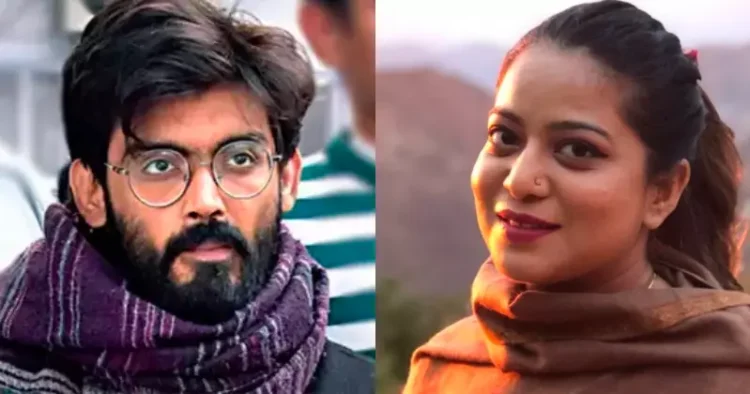Delhi, India: On March 28, the Delhi High Court set aside the trial court’s decision to discharge Sharjeel Imam, Safoora Zargar, Asif Iqbal Tanha and eight others in the 2019 Jamia violence case. Furthermore, the Court framed charges against them under the Indian Penal Code (IPC), Live Law reported.
Justice Swarana Kanta Sharma was hearing the Delhi Police’s plea against the trial court’s order discharging the accused in the 2019 Jamia violence case. The Court observed, “This court starts the discussion with the premise that this court is not innovating jurisprudence or procedure to be adopted at the stage of framing of charge by the courts which is well established extensively by way of various proceedings of the honourable apex court. The application of principles laid down in such legal proceedings have been only reaffirmed by this court,” Indian Express reported.
Furthermore, the Court said that “as for the prosecution’s case the warnings given by the police…the mob not only tried but succeeded in breaking the first line of the barricade they also started pelting stones…many policemen were injured in the incident but the crowd did not stop…in the meantime the crowd also set on fire some private…vehicles,” Indian Express reported.
The Court said, “As far as role of each respondent is concerned…prima facie in the situation which is visible in the video clips…the respondents in question were visible being in the first line of the mob pushing the barricades against police officers and raising slogans. It is difficult to explain…as the entire action unfolded as it is visible in video clip three. They were also raising slogans of Delhi Police Murdabad and were violently pushing barricades against the handful of policemen who were holding on to the barricades…they were consciously part of an assembly and consciously did not leave the place of such violence and chose to remain part of it,” Indian Express reported.
The Court said, “As there is no denial of the right of freedom of expression available to every citizen…This court remains aware of its duty to ensure the rights which are declared in the Constitution are not lost in reality. Right to peaceful assembly is subject to reasonable limits. Act of violence and violent speeches…are not protected,” Indian Express reported.
Furthermore, the Court said that the charges should be framed against Mohd Qasim, Mahmood Anwar, Shahzar Raza Khan, Umar Ahmad, Mohd Bilal Nadeem, Sharjeel Imam, Chanda Yadav and Safoora Zargar u/s 143 (punishment for unlawful assembly), 147 (punishment for rioting), 149 (every member of unlawful assembly guilty of offence committed in prosecution of common object), 186 (obstructing public servant in discharge of public functions), 353 (assault or criminal force to deter public servant from discharge of duty), 427 (mischief causing damage to amount of fifty rupees) of the IPC and u/s 3 of Prevention of Damage to Public Property Act. However, the Court discharged them of the rest of the offences as per First Information Report (FIR).
The Court said discharged Asif Iqbal Tana u/s 308 (attempt to commit culpable homicide), 323 (punishment for voluntarily causing hurt), 341 (punishment for wrongful restraint), 435 (mischief by fire) of the IPC. However, it noted that charges must be framed under other offences alleged against him.
The Court framed charges against Mohd Abuzar and Mohd Shoaib u/s 143 (unlawful assembly) of the IPC and discharged them under other crimes. Furthermore, the Court said that if in case evidence comes up against the accused for offences for which they have been discharged, the trial court may proceed as per law against them.
On February 4, the trial court discharged Sharjeel Imam, Asif Iqbal Tanha, Safoora Zargar, Mohd Abuzar, Umair Ahmed, Mohd Shoaib, Mahmood Anwar, Mohd Qasim, Mohd Bilal Nadeem, Shahzar Raza Khan, and Chanda Yadav in the 2019 Jamia violence case. Thereafter, the Delhi Police moved the Delhi High Court challenging the trial court’s decision.
It is pertinent to note that sections 143, 147, 148, 149, 186, 353, 332, 333, 308, 427, 435, 323, 341, 120B and 34 of IPC were invoked in the 2019 Jamia violence case, alleging offences of rioting and unlawful assembly in the FIR. The Delhi Police had filed a chargesheet against Mohd Ilyas on April 21, 2020, and a second supplementary chargesheet was filed against the 11 other accused later.
On February 1, the Delhi Police filed a third supplementary chargesheet during the arguments on charges, claiming that the witnesses have identified the accused based on photographs. However, the trial court held that Delhi Police has failed to adduce fresh evidence and is presenting old facts in the garb of “further investigation” through the third supplementary chargesheet. Furthermore, the trial held that there were no witnesses who could substantiate the Delhi Police’s version that the accused were involved in committing the offences.
Delhi Police argued that the trial court was swayed by emotions and sentiments while discharging the accused. Furthermore, it was argued that the trial court passed a prejudicial order along with adverse remarks against the prosecuting agency and the investigation.
Delhi Police argued that the trial court conducted a mini-trial at the stage for framing charges whereas the trial court ought to have sifted through the evidence to find out whether there was sufficient ground for proceeding against the accused.




















Comments